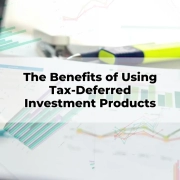Is superannuation an asset?
Table of Contents
ToggleUnderstanding the world of money and superannuation can be a difficult task, especially when it comes to understanding where your hard-earned savings stand. So, is superannuation an asset? It’s understandable to feel overwhelmed by all the financial terms, but don’t worry – we’re here to break down everything you need to know about this important topic so that you are armed with accurate information when deciding how best to manage your assets. Read on to find out more!
Defining an asset
An asset is anything that is owned and has a tangible value. It is important to understand what assets are because they are used to measure wealth, secure loans and make important financial decisions.
Assets range from physical items such as property, collectibles, jewelry, and cars to intangible items like cash investments, stocks, bonds and is even seen in intellectual property. Businesses have assets such as inventory and technology while individuals may have the equity in their homes or their superannuation funds; speaking of which is superannuation an asset? It is not quite black and white since each situation is unique but, yes, it is viewed as an asset within a certain context.
What is superannuation and how does it work?
Superannuation is a retirement savings account held by an authorised trustee on behalf of the account holder making it an asset protected by law. Funds usually accumulate from employer contributions, which is the primary source of income.
Superannuation is sometimes supplemented with voluntary contributions like salary sacrificing and rolling over existing super into a new fund. Generally, a person is not able to access their super until they reach preservation age which is typically between 55 and 60 years depending on when you were born, though it is important to note there are exceptions to this rule. As such, setting up a super fund is an important step in planning for retirement.

Superannuation as an investment vehicle
Superannuation is an asset class of its own for several reasons. Firstly, it is exempt from normal tax law, meaning that any income or gains from investments within the super environment are free from taxation or at least receive hugely preferential taxation treatment.
Secondly, contributions can be made by employers and/or employees and additional funds can be added after-tax is taken out, called salary sacrifice top-ups.
Thirdly, there is an emphasis on long-term planning with regards to investments within super meaning that the accountholder is more likely to stay invested for longer which is beneficial in a market which is highly volatile.
With all these points in mind, it’s clear to see why many might consider superannuation as an attractive option when looking for investment vehicles.
Pros and cons of using superannuation as an asset
Superannuation is a long-term retirement savings plan for Australians, often viewed as an asset to improve lifestyles in future years. While there is clear benefit in setting aside funds in the form of superannuation, there is also downsides that should be considered when deciding whether is it the right avenue for your financial goals.
One positive is tax advantages on contributions made by employers and individuals which assists with wealth accumulation over time. Additionally, investments within superannuation have less paperwork associated with them than other vehicles such as shares and bonds. For example, you may earn capital gains when selling shares but not incur a tax on these profits if they are held within a super fund.
On the other hand, drawbacks can include fees charged by fund managers such as management fees or transaction costs to enter and exit a fund that eat away at returns. Another pit fall is limited and inflexible access options to early release funds from your account and trading is largely excluded from many accounts so changing allocations isn’t always permissible under certain plans.
It’s important to consider all these factors when determining whether is superannuation an asset for you personally, either currently or in the future.

How to make the most of your superannuation fund
Managing your superannuation is a great way to set yourself up for a successful financial future. Setting up a sound superannuation fund is one of the most effective ways to save money and is an asset that not many people think about leveraging. To get the most value from your superannuation, it is important to become familiar with the different types of funds, what fees apply, and all the tax implications associated with the fund.
Get in touch with a financial planner or specialist who is knowledgeable and experienced in superannuation management to help guide you in making smart decisions when choosing and maintaining your fund. Doing so can ensure growth of your asset and provide you with massive returns on investment for life.
So, is superannuation an asset? Well, it depends on how you define an asset. If you consider anything that has the potential to grow in value and generate income an asset, then yes – superannuation can be considered an asset. However, if you only consider something that immediately puts cash in your pocket an asset, then no – superannuation isn’t going to help you out much in the short-term.
Superannuation is a long-term investment vehicle designed to provide for retirement income – it’s not going to give you a quick financial fix. Whether or not using your super as an asset is right for you depends on your personal circumstances, goals and risk appetite.

If you’re unsure about whether utilising your super fund as an investment tool is right for you, Wealth Factory can help. We offer complimentary discovery calls to discuss your options and see if we’re a good fit to work together. Book yours today!









